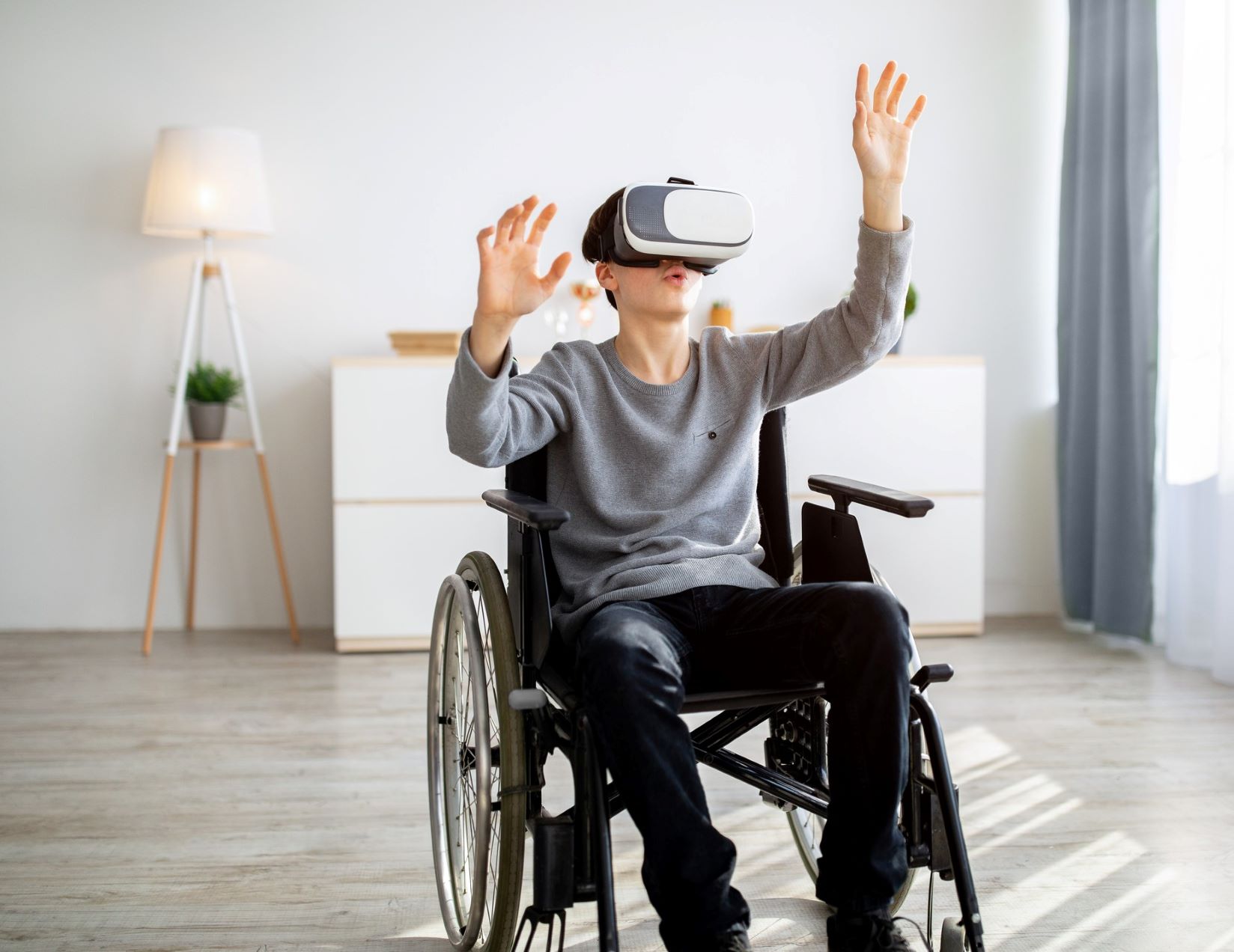 University of Alabama at Birmingham was awarded a $290,000 RO3 grant from the National Institutes of Health to examine the benefits of virtual reality gaming on cardiometabolic health among youths with cerebral palsy.
University of Alabama at Birmingham was awarded a $290,000 RO3 grant from the National Institutes of Health to examine the benefits of virtual reality gaming on cardiometabolic health among youths with cerebral palsy.
The project’s principal investigator is Byron Lai, PhD is an Assistant Professor in the Department of Pediatrics, and holds a secondary appointment within the Department of Physical Medicine and Rehabilitation. Dr. Lai has focused on this type of research for over a decade with the UAB/Lakeshore Collaborative where he has focused on clinical exercise training among various groups with physical and cognitive disabilities.
This pilot program, currently working with 17 participants ages 13-19 from the Children’s Hospital of Alabama, includes 12 weeks of virtual reality active video gaming using immersive consumer available low-cost equipment, with games adapted for people with limited mobility.
Kids with mobility disabilities have very few options for cardiovascular exercise, especially if they're in a wheelchair. This may lead to an inactive, sedentary lifestyle placing them at greater risk for cardiovascular disease and mortality than the general population. This study hopes to identify an enjoyable method for promoting health enhancing therapeutic exercise among this group. Additionally, the study utilizes low-cost telehealth and gaming equipment so that it can readily implemented on a larger scale.
“One benefit unique to this study is that it’s a completely home-based intervention. Increased isolation during the pandemic led to a need for remote connection and community engagement. Access to participate in VR gaming through tele-exergaming may promote sustainable exercise options among large groups of youth,” says Lai.
The virtual reality exergaming includes the Oculus Quest, a heart rate monitor, blood pressure cuff, and mobile application. The games include rhythmic movements to music, sports, and recreation activities that prompt increased activity. Participants are required to do 300 minutes of low intensity exercise or 150 minutes of moderate to vigorous exercise per week. The program also includes behavioral, physical education coaching through videoconference, which aims to enhance participation, provide basic exercise knowledge, and increase mastery playing the games.
This study is intended to improve overall blood related health in participants compared to a waitlist control group, while incorporating healthy habits that will sustain into adulthood.